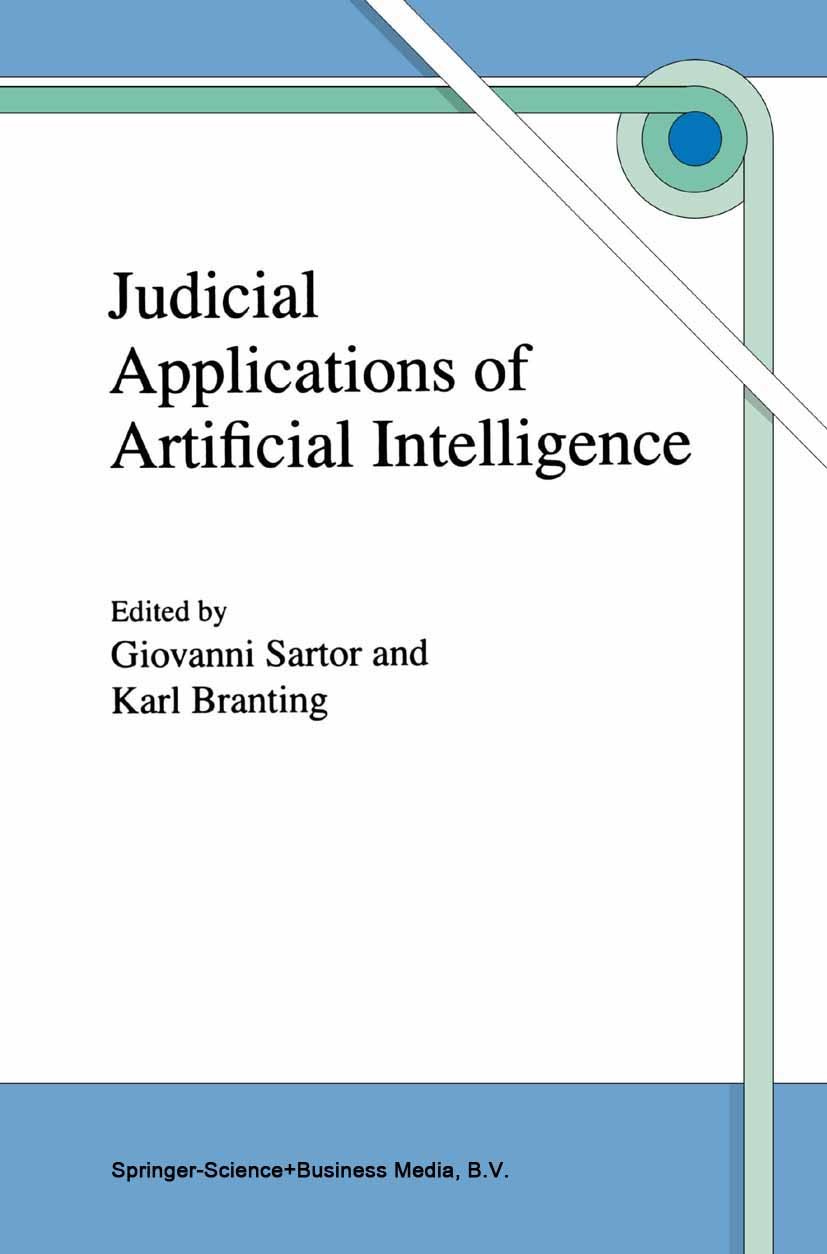| 书目名称 | Judicial Applications of Artificial Intelligence | | 编辑 | Giovanni Sartor,Karl Branting | | 视频video | http://file.papertrans.cn/502/501396/501396.mp4 | | 图书封面 |  | | 描述 | The judiciary is in the early stages of a transformation inwhich AI (Artificial Intelligence) technology will help to make thejudicial process faster, cheaper, and more predictable withoutcompromising the integrity of judges‘ discretionary reasoning.Judicial decision-making is an area of daunting complexity, wherehighly sophisticated legal expertise merges with cognitive andemotional competence. How can AI contribute to a process thatencompasses such a wide range of knowledge, judgment, and experience?Rather than aiming at the impossible dream (or nightmare) of buildingan automatic judge, AI research has had two more practical goals:producing tools to support judicial activities, including programs forintelligent document assembly, case retrieval, and support fordiscretionary decision-making; and developing new analytical tools forunderstanding and modeling the judicial process, such as case-basedreasoning and formal models of dialectics, argumentation, andnegotiation. .Judges, squeezed between tightening budgets and increasing demands forjustice, are desperately trying to maintain the quality of theirdecision-making process while coping with time and resourcelimitations. Flexible | | 出版日期 | Book 1998 | | 关键词 | Argumentation; Computerrecht; artificial intelligence; case-based reasoning; complexity; emotion; intellig | | 版次 | 1 | | doi | https://doi.org/10.1007/978-94-015-9010-5 | | isbn_softcover | 978-90-481-5136-3 | | isbn_ebook | 978-94-015-9010-5 | | copyright | Springer Science+Business Media Dordrecht 1998 |
The information of publication is updating

|
|
 |Archiver|手机版|小黑屋|
派博传思国际
( 京公网安备110108008328)
GMT+8, 2026-2-9 23:54
|Archiver|手机版|小黑屋|
派博传思国际
( 京公网安备110108008328)
GMT+8, 2026-2-9 23:54


